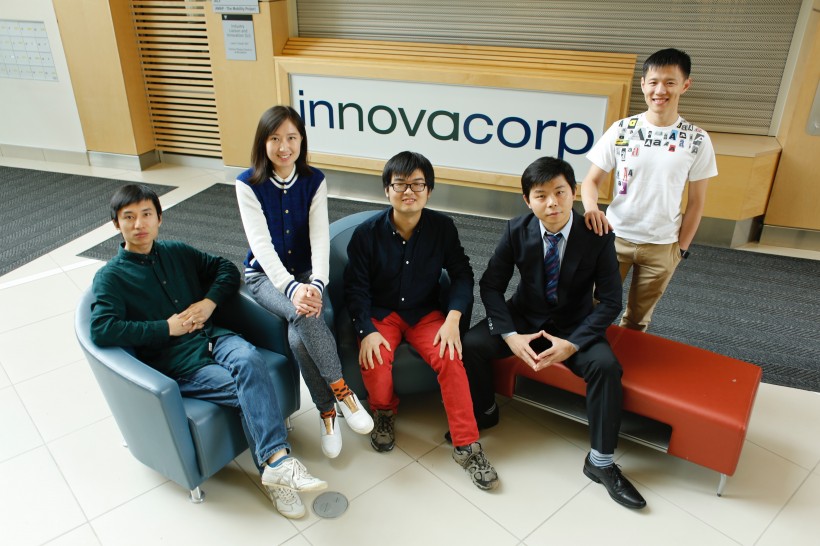To illustrate how his company, Skyline, is helping bricks-and-mortar retailers defend their market, CEO Hu Hai likes to use simple Lego building blocks as a metaphor.
Skyline won some attention last year when Innovacorp attracted the company to Halifax from China by sponsoring it in the federal government’s Startup Visa program. The company at the time was dedicated to building enterprise software systems inexpensively, but it has turned its attention to automating the shopping process in stores.
Hu likes to compare Skyline to the flat platform that serves as the base of a Lego model, and the Lego blocks are facial recognition software, a customer-relationship management system, and the retailer’s point-of-sale system. The blocks are all fastened to the Skyline platform, which becomes the hub of the operation.
“We are a smart retail solution where Skyline becomes the Lego base platform to help bricks-and-mortar retailers better understand their customers,” Hu said in a recent interview. “When they’re using the Skyline platform, I hope they are able to connect the Lego blocks and better understand their customers and (help the retailers) sell more.”
Skyline began in 2014 when Hu and five collaborators built an engine that would help enterprise clients build their own software quickly, efficiently and inexpensively. Over the years, the company went through the Alchemist accelerator in Silicon Valley and worked with mentors in China and Nova Scotia.
Retrievium Founder Upbeat After Creative Destruction Lab
In the past year, the team focused in on the retail sector, which is suffering massive disruption from e-commerce providers, especially Amazon.
Hu’s pitch deck is packed with data on the misery heaped on retailers these days and the chains that are closing stores: 175 outlets shuttered by Gap, 68 by Macy’s, 278 by Sears and Kmart, and on and on. Skyline built a digital platform to help retailers reverse the trend. The company, which takes pride in its development abilities, actually assigned three people to build the basic product, and they did so in three days.
What Skyline proposes is a solution similar to what Amazon is doing with its automated Amazon Go store in Seattle — a store with no cashiers. Using cameras, a customer relationship management and a payment system, Skyline is working on stores in which shoppers can pick things off the shelf and leave the store without going through a cashier. The facial recognition software identifies them and a payment system charges them. The system can also help with marketing and collect the data that is an utter necessity in modern retailing.
The company last October delivered a keynote address at a conference in Fujian province in China, which led to a relationship with Tingyi, the world’s largest maker of instant noodles. Together, they have set up a test centre in Shanghai to showcase how the system would work.
So far, it is demonstrating the potential of the system, with a few wrinkles to iron out. For example, the facial recognition software is now 75 per cent successful, and the camera system so far doesn’t work with liquids or metal products.
“It might not come to life soon because there are security concerns and stability problems, but it is the future,” Hu said.
For now, Skyline is raising money — the goal is a million-dollar round of financing, with $400,000 already committed. And it’s speaking with potential early adopters in Nova Scotia.
“We can use Halifax as our testing ground,” said Hu. “Once we validate the value of our product here, we can attack bigger markets.”










